

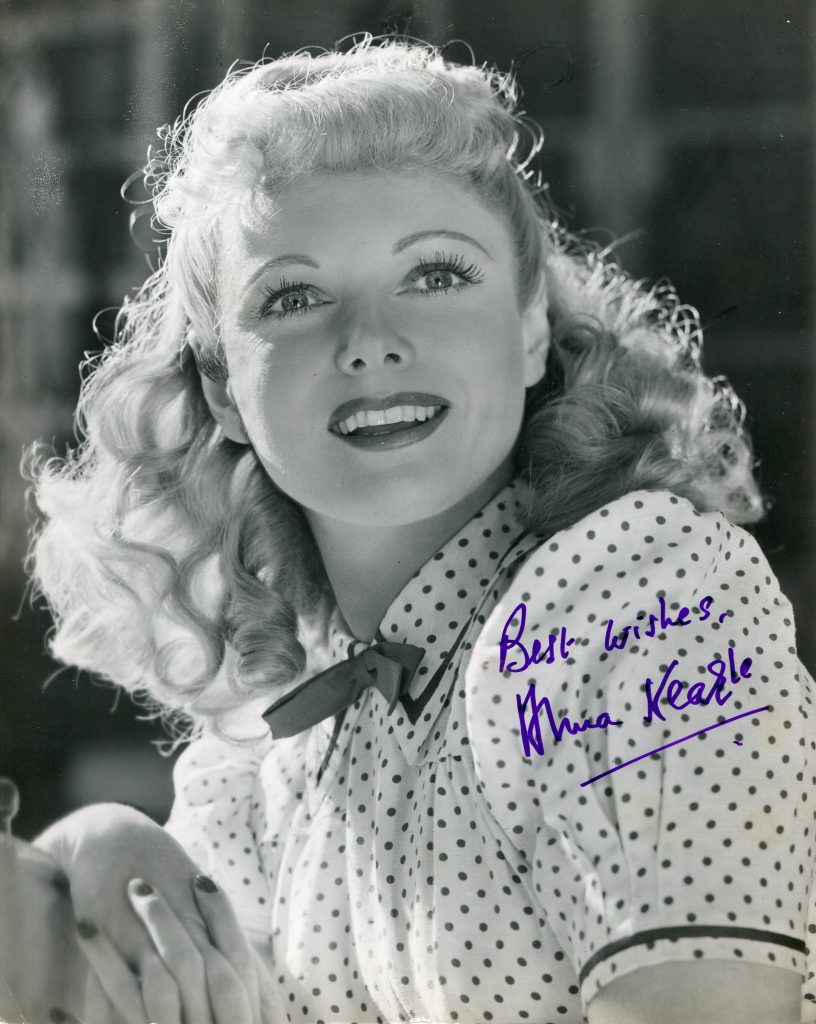
Anna Neagle IMDB
Anna Neagle proved to be a box-office sensation in British films for over 25 years. She was noted for providing glamour and sophistication to war-torn London audiences with her lightweight musicals, comedies and historical dramas. She won several awards as Britain’s favourite actress and biggest female box-office draw. Almost all of her films were produced and directed by Herbert Wilcox, whom she married in 1943.
In her historical dramas, Anna Neagle was renowned for her portrayals of real-life British heroines, including Nell Gwynn (Nell Gwynn, 1934), Queen Victoria (Victoria the Great, 1937, and Sixty Glorious Years, 1938) and Edith Cavell (Nurse Edith Cavell, 1939)
Her IMDB entry:
Dame Anna Neagle, the endearingly popular British star during WWII, was born Florence Marjorie Robertson and began dancing as a professional in chorus lines at age 14. She starred with actor Jack Buchanan in the musical “Stand Up and Sing” in the West End and earned her big break when producer/director Herbert Wilcox, who had caught the show purposely to consider Buchanan for an upcoming film, was also taken (and smitten) by Anna, casting her as well in the process.
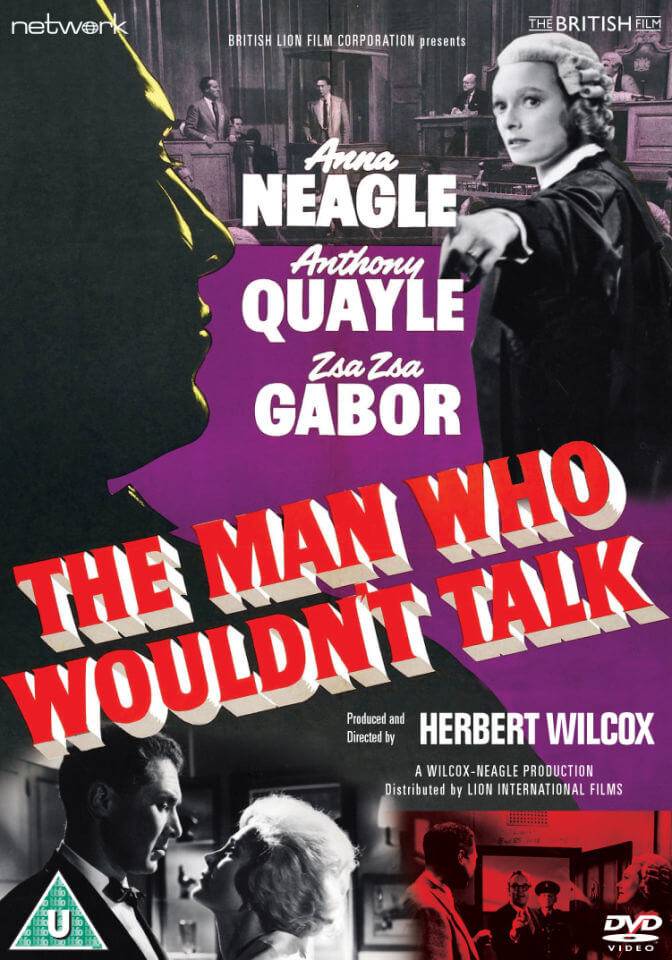
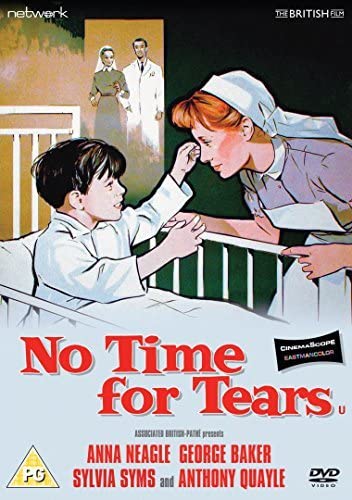
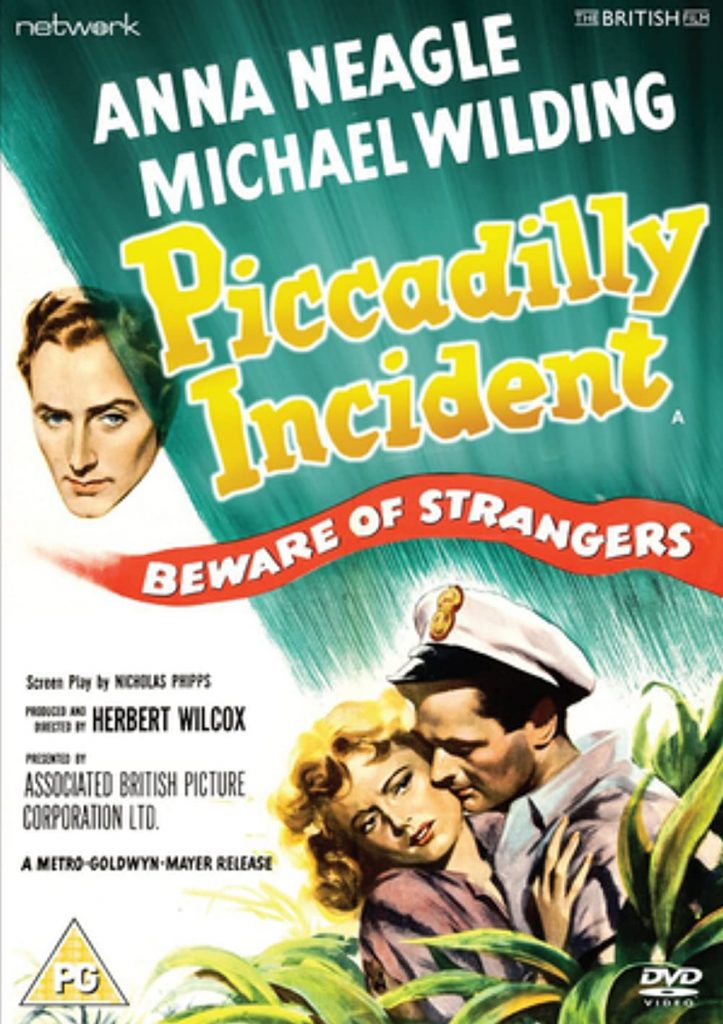

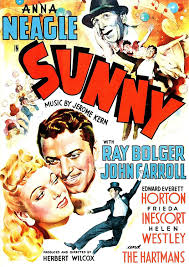

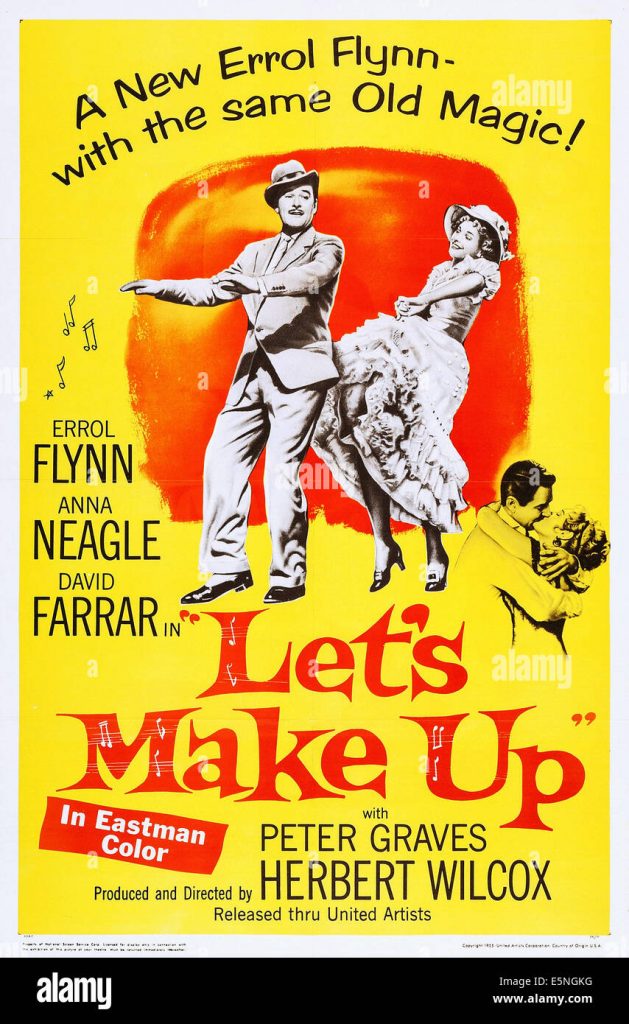



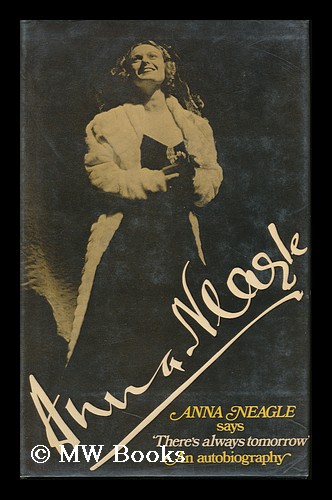
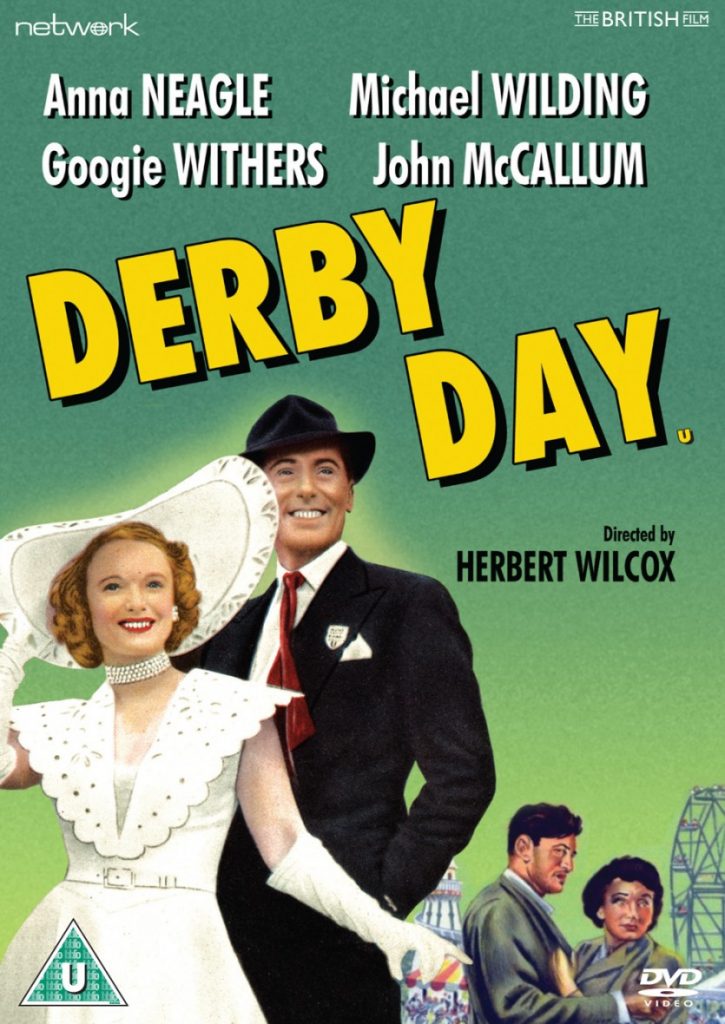

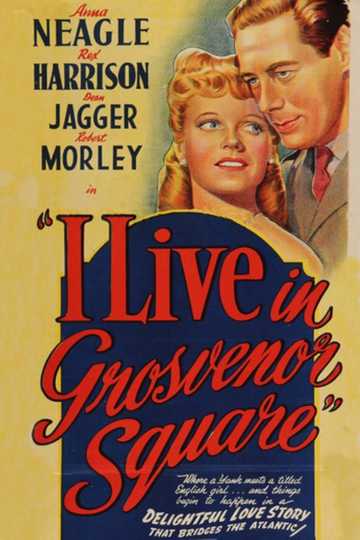
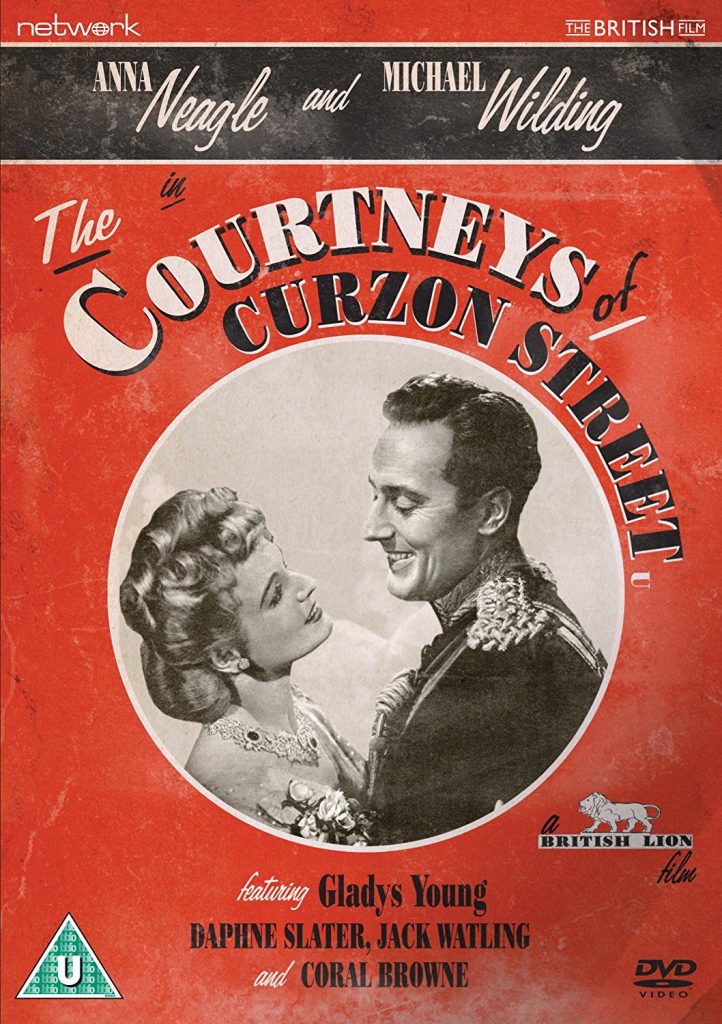


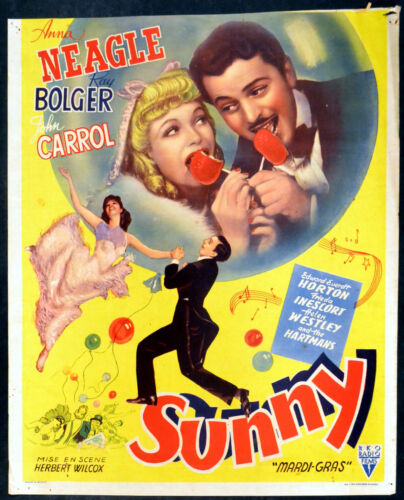

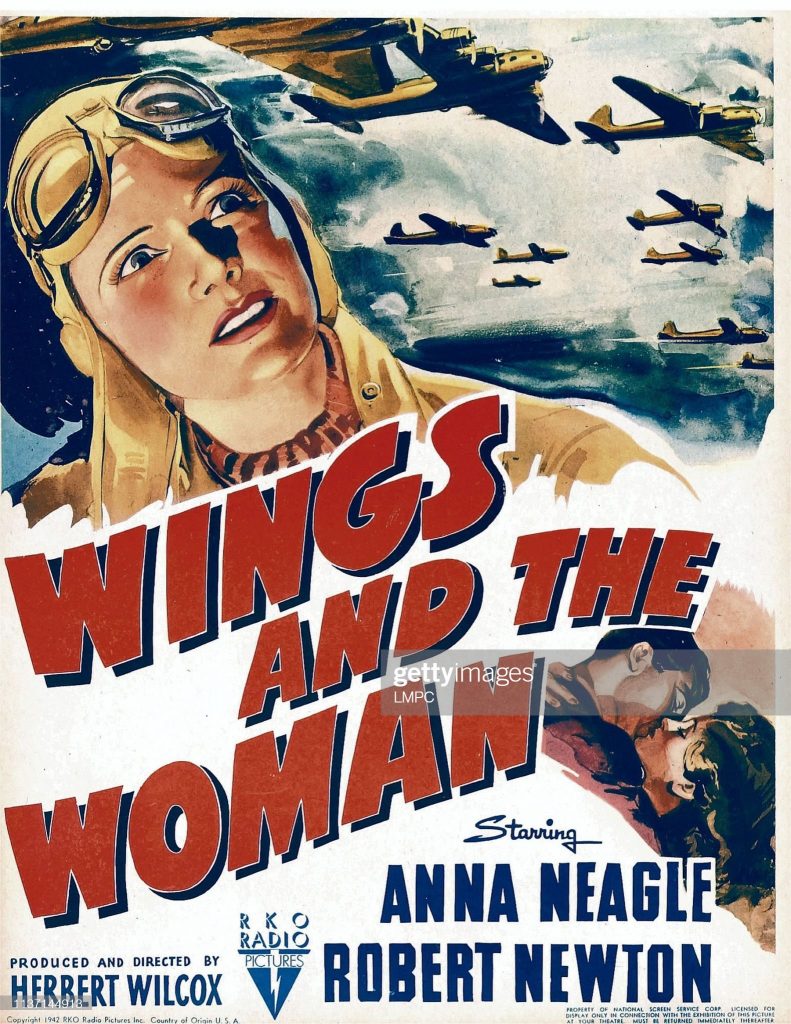

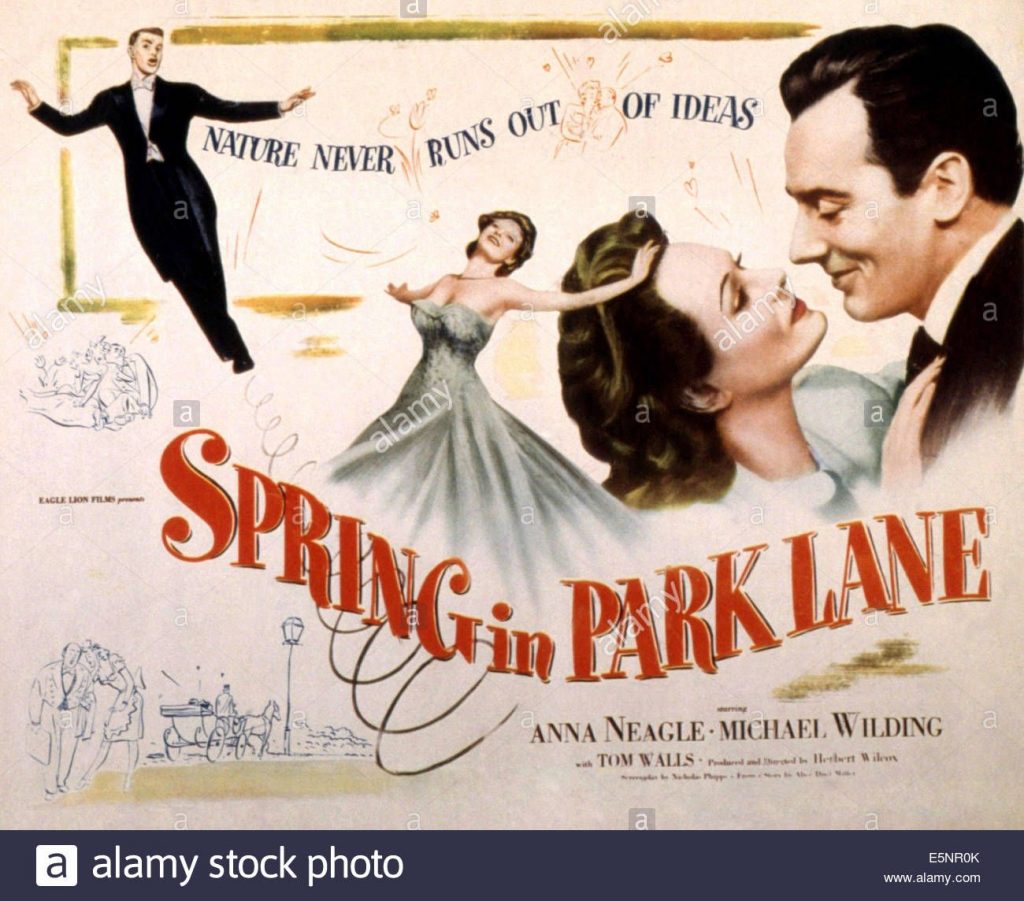
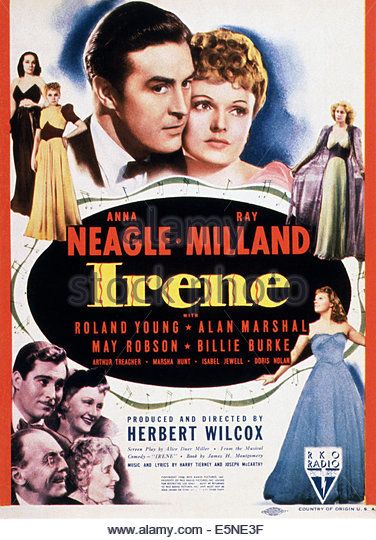

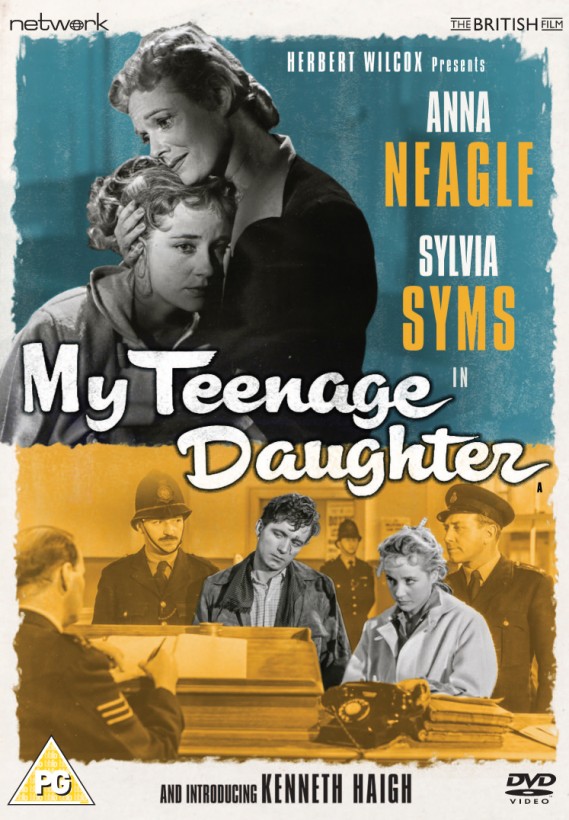
Thus began one of the most exclusive and successful partnerships in the British cinema.
Under Wilcox’s guidance (they married in 1943), Anna became one of the biggest and brightest celebrities of her time. Always considered an actress of limited abilities, the lovely Anna nevertheless would prove to be a sensational box-office commodity for nearly two decades.
She added glamour and sophistication for war-torn London audiences and her lightweight musicals, comedies and even costumed historical dramas provided a nicely balanced escape route.
The tasteful, ladylike heroines she portrayed included nurses Edith Cavell and Florence Nightingale, flyer Amy Johnson and undercover spy Odette; Nell Gwyn and Queen Victoria also fell within her grasp. She appeared in a number of frothy post-war retreads co-starring Michael Wilding that the critics turned their noses on but the audiences ate up – including Piccadilly Incident (1946), Kathy’s Love Affair (1947), Spring in Park Lane (1948) and The Lady with a Lamp (1951).
She tried to extend her fame to Hollywood and briefly appeared there in three musicals in the early 40s, but failed to make a dent. Anna’s appeal faded somewhat in the late 50s and, after producing a few film efforts, retired altogether from the screen.
She returned to her theatre roots, which culminated in the long-running “Charlie Girl”, a 1965 production that ran with Anna for nearly six years. She was bestowed with the honor of Dame of the British Empire in 1969 for her contributions to the theatre. Anna continued to perform after her husband’s death in 1977, later developing Parkinson’s disease in her final years. She died in 1986 of complications.
– IMDb Mini Biography By: Gary Brumburgh / gr-home@pacbell.net
Her IMDB entry can also be accessed here.
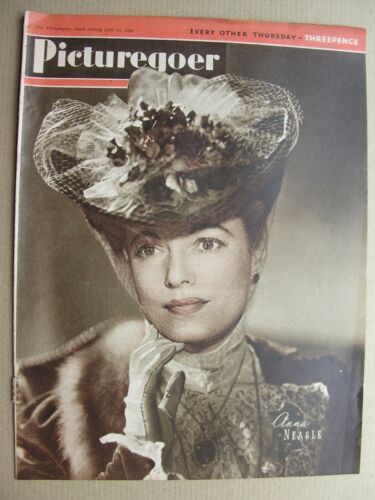

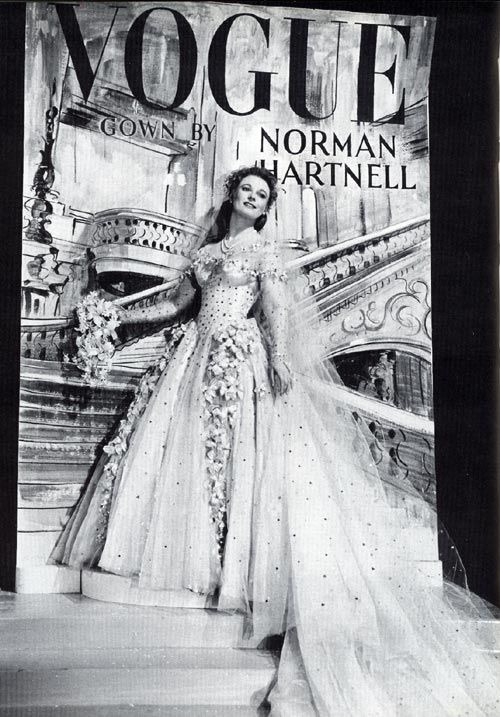





New York Times obituary in 1996
Dame Anna Neagle, a British stage and screen actress whose career spanned more than half a century, died in a nursing home near London yesterday. She was 81 years old.
Miss Neagle was one of Britain’s leading film stars in the late 1930’s and 40’s, specializing in romantic comedies and costume biographies. She played Queen Victoria twice – in ”Victoria the Great” and ”Sixty Glorious Years” – and also portrayed the World War I nurse Edith Cavell.
Other of Miss Neagle’s films include ”Goodnight Vienna,” ”Nell Gwynn,” ”Piccadilly Incident,” ”Girl in the Street,” ”A Yank in London,” ”Spring in Park Lane,” ”Irene” and a film version of the musical ”No No Nanette.” She had a close working relationship with the director and producer Herbert Wilcox, whom she met in the early 1930’s and to whom she was married for 34 years until his death in 1977. She worked for only two other directors during her long career.
She was not a particular critical favorite: Some found her acting wooden, her voice reedy, and her dancing only adequate. But she was enormously popular with British audiences and was voted most popular actress for seven straight years after World War II. For her part, Miss Neagle said she never read her notices.


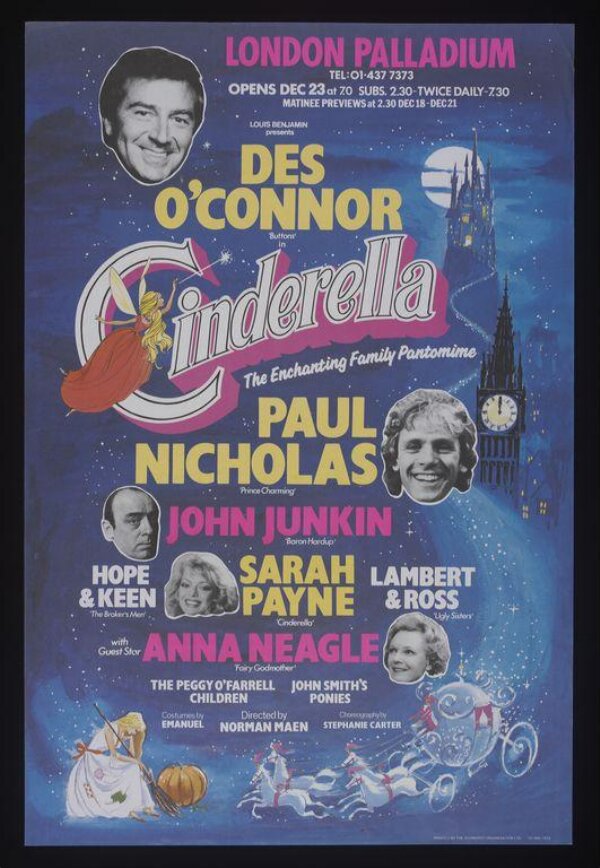
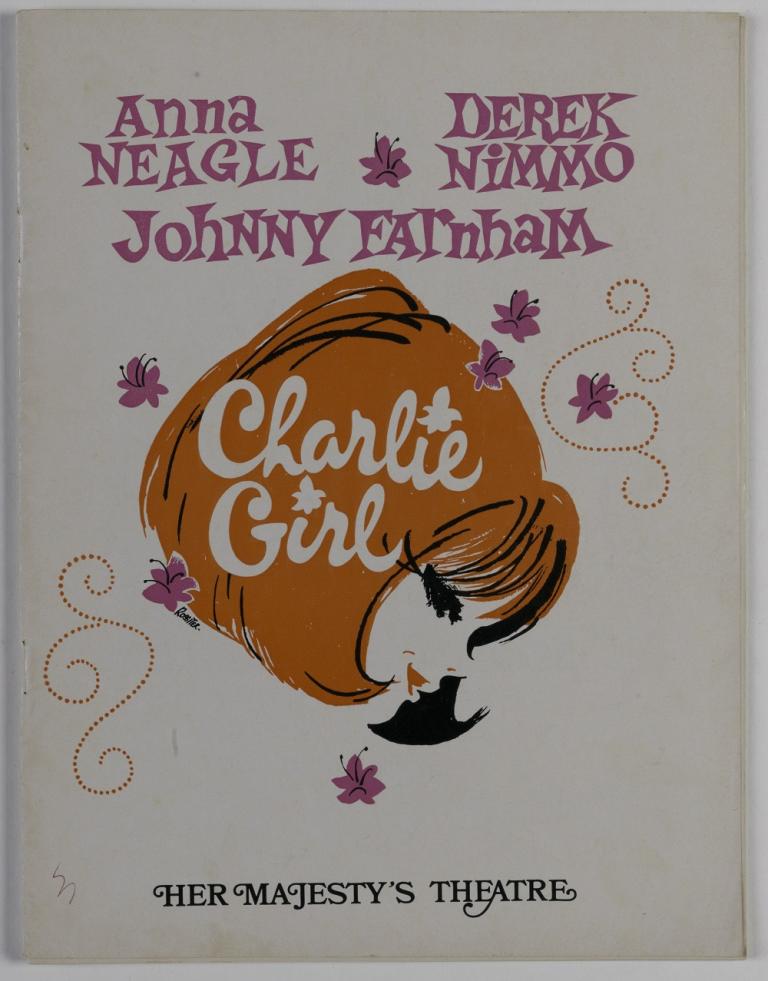
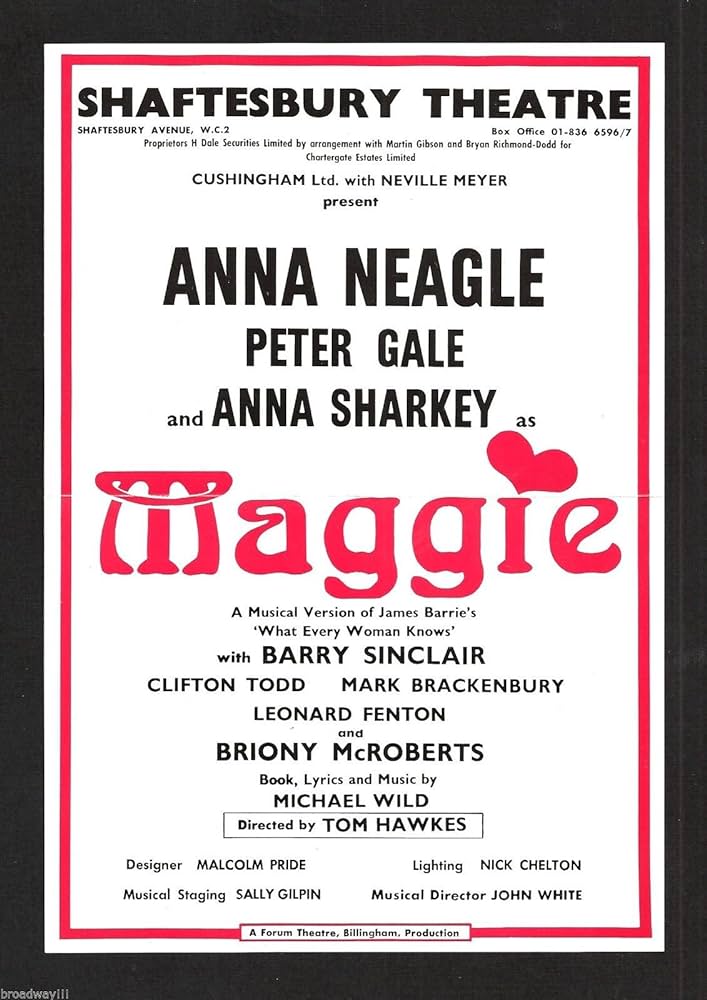
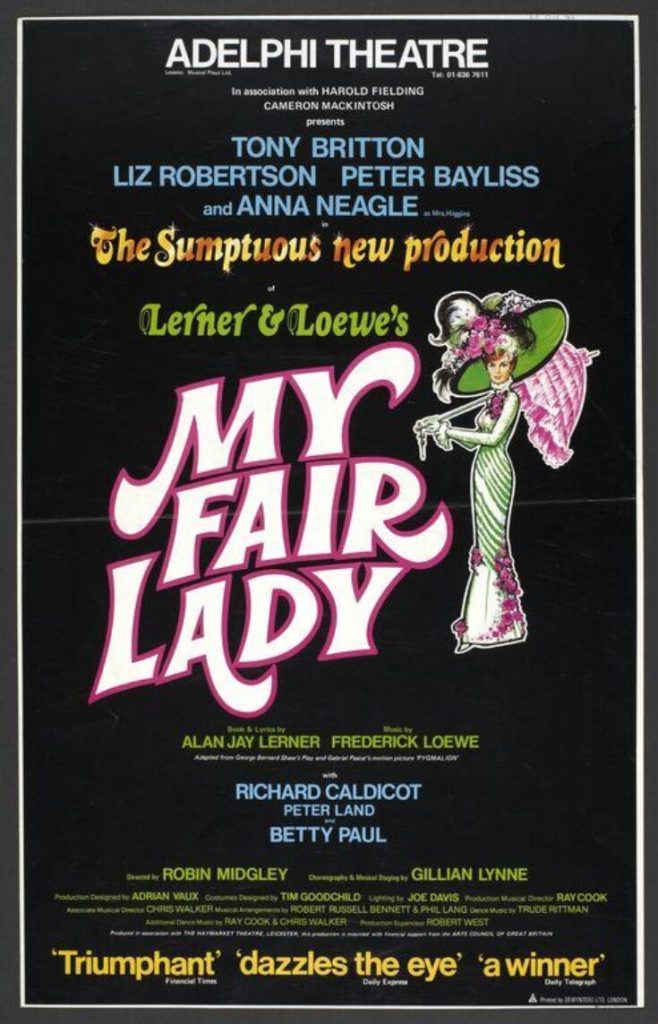


In the 1960’s Miss Neagle returned to the stage and appeared in 2,062 performances of ”Charlie Girl” in the West End between 1965 and 1971. Began in Chorus Line
Miss Neagle, whose given name was Marjorie Robertson, was born in London on Oct. 20, 1904, and began her career as part of a dance troupe called ”The Young Ladies.” In a scene that could have come from a Hollywood musical, Miss Neagle was picked from a chorus line in 1931 to appear opposite Jack Buchanan in a West End show, ”Stand Up and Sing.” Other stage appearances included ”Magic Night” and ”The Little Damozel.”
Mr. Wilcox saw her in the latter play and chose her to appear in ”Goodnight Vienna.” Her portrayal of a British Secret Service agent in ”Odette” was considered by many to be her finest performance, although ”Piccadilly Incident,” with Michael Wilding, a melodramatic tale of love and war, may have been her biggest success.
In recent years, Miss Neagle’s film work had undergone a revival, and she came to New York last year for a retrospective of her films presented by the Museum of Modern Art. She was made a Dame by Queen Elizabeth in 1979.
Miss Neagle last appeared on stage earlier this year in a variety show that ran three months at the Palladium in London. She entered a nursing home 10 days ago, suffering from exhaustion


